Ditapis dengan
E-book Surgery in and around the Orbit : Cross Roads
Already in 1920, in a report to the UK Minister of Health, the concept of team-based care was con-ceived [1]. Now, PubMed shows no less than 61,496 hits when one searches for “multidisci-plinary.” This short chapter is certainly not a plea to approach each and every medical problem by a team of specialists, but in cross-disciplinary case-load, today interdisciplinary care …
- Edisi
- -
- ISBN/ISSN
- 9783031406973
- Deskripsi Fisik
- 338 hlm
- Judul Seri
- -
- No. Panggil
- 617.7 BEC s
E-book The Malay Archipelago
A century and a half after it was first published, this book remains one of the great classics of natural history and travel—perhaps the greatest. Alfred Russel Wallace (1823-1913) deserves equal billing with Charles Darwin for his independently drawn but parallel conclusions on the theory of evolution. Darwin himself called Wallace "generous and noble" and referred favorably to his work in l…
- Edisi
- -
- ISBN/ISSN
- 9780794605636
- Deskripsi Fisik
- 600 halaman, ilus.
- Judul Seri
- -
- No. Panggil
- 959 WAL t
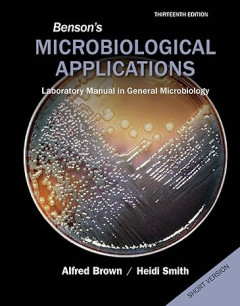
E-book Benson's Microbiological Applications Short Version: Laboratory Manual…
Benson's Microbiological Applications has been the gold standard of microbiology laboratory manuals for over 30 years. The 77 self-contained, clearly-illustrated exercises, and four-color format with a wealth of added photographs makes this the ideal lab manual. Appropriate for either a majors or non-majors lab course, this manual assumes no prior organic chemistry course has been taken.
- Edisi
- Edisi 13
- ISBN/ISSN
- 9780073402413
- Deskripsi Fisik
- 481 halaman, ilus.
- Judul Seri
- -
- No. Panggil
- 616.01 BRO b

E-book Hidden Dimensions: The Unification of Physics and Consciousness (Colum…
Bridging the gap between the world of science and the realm of the spiritual, B. Alan Wallace introduces a natural theory of human consciousness that has its roots in contemporary physics and Buddhism. Wallace's "special theory of ontological relativity" suggests that mental phenomena are conditioned by the brain, but do not emerge from it. Rather, the entire natural world of mind and matter, s…
- Edisi
- -
- ISBN/ISSN
- 9780231141512
- Deskripsi Fisik
- 173 halaman
- Judul Seri
- -
- No. Panggil
- 530.12 WAL h
E-book Come Hell or High Fever : Readying the World's Megacities for Disaster
Haruki Akamatsu had not felt the ocean crust heave 10 metres upward. He was not there to see the 6-metre tsunami surge inland, drowning thousands and clawing the earth bare with its retreat. He had, however, clutched the carpet beneath his desk as the twenty-first-floor office in Tokyo swayed sickeningly, thinking the worst was over when the swaying stopped. It was not, b…
- Edisi
- -
- ISBN/ISSN
- 9781760465544
- Deskripsi Fisik
- 499 hlm
- Judul Seri
- -
- No. Panggil
- 320 GLE c
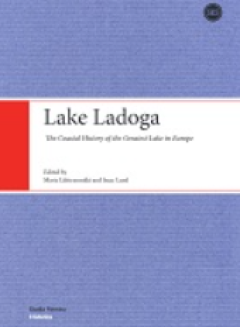
E-book Lake Ladoga : The Coastal History of the Greatest Lake in Europe
Coastal history has been a reference point in maritime, harbor, and naval history, coastal urban history and interdisciplinary marine studies,4but it is only in the last twenty years that climate change has stimulatedenvironmental humanities5practitioners to focus on water, sustainable management of its resources, and multidisciplinary studies.6 In the pro…
- Edisi
- -
- ISBN/ISSN
- 9789518586305
- Deskripsi Fisik
- 237 hlm
- Judul Seri
- -
- No. Panggil
- 320.58 BJO l
E-book Compilers : Principles, Techniques, and Tools
Progamming languages are notations for describing computations to people and to machines. The world as we know it depends on progamming language. But, before a program can be run, it first must be translated into a form in which it can be executed by a computer. In this preliminary chapter, we introduce the different forms of language translators, give a high level overview of the structure of …
- Edisi
- 2nd ed.
- ISBN/ISSN
- 0321486811
- Deskripsi Fisik
- 1038 hlm
- Judul Seri
- -
- No. Panggil
- 005.4 VAH p
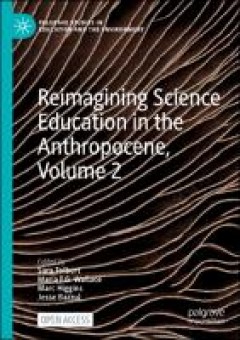
E-Book Reimagining Science Education in the Anthropocene, Volume 2
This volume, a follow up to Reimagining Science Education in the Anthropocene (2021), continues a transdisciplinary conversation around reconceptualizing science education in the era of the Anthropocene. Drawing educators from many walks of life and areas of practice together in a creative work that helps reorient science education toward the problems and peculiarities associated with this cont…
- Edisi
- -
- ISBN/ISSN
- 9783031354304
- Deskripsi Fisik
- 421 halaman
- Judul Seri
- -
- No. Panggil
- 370.1 TOL r
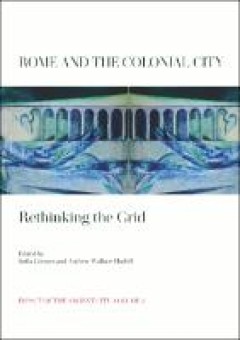
E-Book Rome and the Colonial City: Rethinking The Grid
According to one narrative, that received almost canonical status a century ago with Francis Haverfield, the orthogonal grid was the most important development of ancient town planning, embodying values of civilization in contrast to barbarism, diffused in particular by hundreds of Roman colonial foundations, and its main legacy to subsequent urban development was the model of the grid city, sp…
- Edisi
- -
- ISBN/ISSN
- 9781789257823
- Deskripsi Fisik
- 433 halaman
- Judul Seri
- -
- No. Panggil
- 940 GRE r
E-book The Norton Anthology of English Literature
She wrote political pamphlets in the 1790s, opposing Britain's declaration of war against France, defending democratic government and popular education, and campaigning for the repeal of the Test Acts that had long excluded Nonconformist Protestants (those who would not subscribe, as a "test" of their loyalty, to the thirty-nine Articles of the Established Church) from the public life of the na…
- Edisi
- 8th ed.
- ISBN/ISSN
- 0393925323
- Deskripsi Fisik
- 3023 hlm
- Judul Seri
- -
- No. Panggil
- 823 CHR t
E-book The Essence of Software Engineering
The age of digitization can be characterized by the fact that digital technology ismore and more closely integrated with business models. It provides key supportof everyday life both in business and the private. In economy, more and moreenterprises directly depend on their abilities to combine all the potentials ofdigital technology with their business models and their …
- Edisi
- -
- ISBN/ISSN
- 9783319738970
- Deskripsi Fisik
- 247 hlm
- Judul Seri
- -
- No. Panggil
- 005.1 BRO t
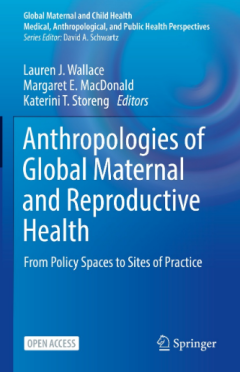
E-book Anthropologies of Global Maternal and Reproductive Health: From Policy…
This open access edited book brings together new research on the mechanisms by which maternal and reproductive health policies are formed and implemented in diverse locales around the world, from global policy spaces to sites of practice. The authors – both internationally respected anthropologists and new voices – demonstrate the value of ethnography and the utility of reproduction as a le…
- Edisi
- -
- ISBN/ISSN
- 9783030845148
- Deskripsi Fisik
- 225 hlm
- Judul Seri
- -
- No. Panggil
- 362.1 WAL a
E-book Getting Started in Food Preservation : Leader's Guide
This food preservation manual is written to assist the parent or club leader in teaching young people about food safety and preservation through hands-on activities. If you are introducing yourself or youth to the world of food preservation, this is a fun place to begin! As a leader you will need this manual, which includes lists of materials and handouts to be copied. Each youth should have th…
- Edisi
- -
- ISBN/ISSN
- -
- Deskripsi Fisik
- 60 hlm
- Judul Seri
- -
- No. Panggil
- 641.4 WAL g
E-book The clue of the twisted candle
The 4.15 from Victoria to Lewes had been held up at Three Bridges in consequence of a derailment and, though John Lexman was fortunate enough to catch a belated connection to Beston Tracey, the wagonette which was the sole communication between the village and the outside world had gone. "If you can wait half an hour, Mr. Lexman," said the station-master, "I will telephone up to the villa…
- Edisi
- -
- ISBN/ISSN
- -
- Deskripsi Fisik
- 325 hlm; 0.4 mb
- Judul Seri
- -
- No. Panggil
- 823 WAL t
E-book The fairy godmothers and other tales
In one of the beautiful bays on the coast of Fairy Land, a party of Fairies was assembled on a lovely evening in July. There are many beautiful bays on the coast of England, and there is one especially, my dear little readers, which you and I know of, where a long line of grand old rocks stretches far into the sea on the left-hand extremity, while in the distance to the right a warning lig…
- Edisi
- -
- ISBN/ISSN
- -
- Deskripsi Fisik
- 155 hlm, 0.2 mb
- Judul Seri
- -
- No. Panggil
- 823 GAT t

The World of Leonardo 1452 - 1519
Exceptional color and black-and-white prints of various works highlight this description of the career and life of Leonardo
- Edisi
- 4th edition
- ISBN/ISSN
- 987178512
- Deskripsi Fisik
- 192 pgs.; illus. 23 x 31 cm
- Judul Seri
- -
- No. Panggil
- 927 WAL t
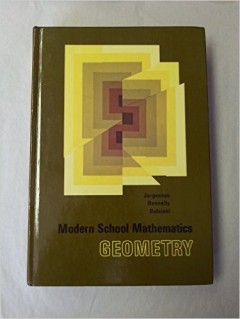
Modern school mathematics : Geometry
- Edisi
- -
- ISBN/ISSN
- 0-395-1310 2-2
- Deskripsi Fisik
- 660 pgs.; illus. 17 x 24 cm
- Judul Seri
- -
- No. Panggil
- 516 JUR m
- Edisi
- -
- ISBN/ISSN
- 0-395-1310 2-2
- Deskripsi Fisik
- 660 pgs.; illus. 17 x 24 cm
- Judul Seri
- -
- No. Panggil
- 516 JUR m
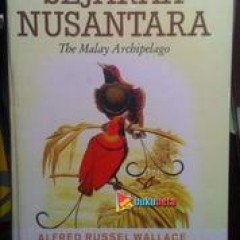
Sejarah Nusantara : The Malay archipelago
Buku ini merupakan warisan yang tak ternilai harganya.Lahir dari seorang petualang sejati dan ditulis pada abad ke-19,buku ini mebedah dan mengurai secara detail seluruh seluk beluk wilayah nusantara dan sekitarnya.
- Edisi
- cet. 1
- ISBN/ISSN
- 978-602-1129-87
- Deskripsi Fisik
- iv + 856 hlm.; illus. 15,5 x 23,5 cm
- Judul Seri
- -
- No. Panggil
- 959.8 WAL s

BUKU PINTAR SEPAKBOLA
- Edisi
- -
- ISBN/ISSN
- -
- Deskripsi Fisik
- vi;150 hlm;illus;14 x 20,5 cm
- Judul Seri
- -
- No. Panggil
- 796.33 CEN b
- Edisi
- -
- ISBN/ISSN
- -
- Deskripsi Fisik
- vi;150 hlm;illus;14 x 20,5 cm
- Judul Seri
- -
- No. Panggil
- 796.33 CEN b

MISTERI JEJAK BERNYALA
- Edisi
- cet. 3
- ISBN/ISSN
- -
- Deskripsi Fisik
- 235 hlm;11 x 18 cm
- Judul Seri
- -
- No. Panggil
- 823 HIT m
- Edisi
- cet. 3
- ISBN/ISSN
- -
- Deskripsi Fisik
- 235 hlm;11 x 18 cm
- Judul Seri
- -
- No. Panggil
- 823 HIT m

MISTERI SINGA GUGUP
- Edisi
- cet. 2
- ISBN/ISSN
- -
- Deskripsi Fisik
- 223 hlm;11 x 18 cm
- Judul Seri
- -
- No. Panggil
- 823 HIT m
- Edisi
- cet. 2
- ISBN/ISSN
- -
- Deskripsi Fisik
- 223 hlm;11 x 18 cm
- Judul Seri
- -
- No. Panggil
- 823 HIT m
 Karya Umum
Karya Umum  Filsafat
Filsafat  Agama
Agama  Ilmu-ilmu Sosial
Ilmu-ilmu Sosial  Bahasa
Bahasa  Ilmu-ilmu Murni
Ilmu-ilmu Murni  Ilmu-ilmu Terapan
Ilmu-ilmu Terapan  Kesenian, Hiburan, dan Olahraga
Kesenian, Hiburan, dan Olahraga  Kesusastraan
Kesusastraan  Geografi dan Sejarah
Geografi dan Sejarah